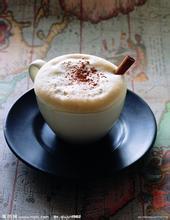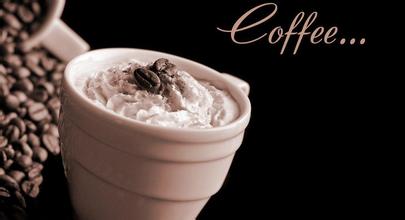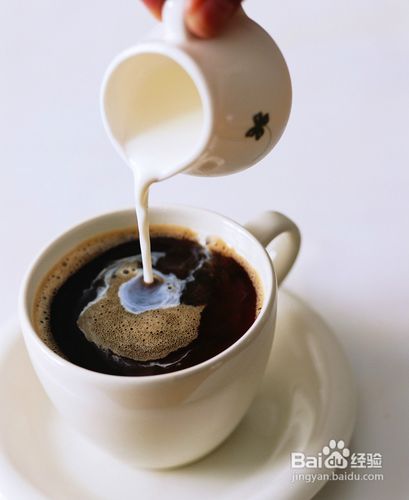Introduction to the characteristics of coffee flavor and taste production area of pure taste in Atlanta Manor, Jamaica
Columbus came to Jamaica in 1494, and in 1509 Spain declared Jamaica its colony and renamed it Santiago. Spain's slave policy towards the indigenous peoples led to the extinction of the Arawaks on the island as a result of war, disease and enslavement. To make up
As a labor force, Spain began to sell slaves from Africa to Jamaica since 1517, causing blacks to gradually become the dominant nation of Jamaica. The Spanish founded the Spanish city in 1538, and as the capital of Jamaica in the 150 years after 1692, Jamaica became a world-famous producer of sugar, rum and coffee. [4] in order to maintain a large number of plantations, Britain established the Royal Africa Company in 1672 in 1958, and Jamaica joined the Union of the West Indies, but in 1961, voters rejected the Union Treaty, which led to Jamaica's withdrawal from the tropical rainforest climate. The rainy season is from May to June and from September to November every year, with the most showers in January and May. The dry season is from December to March next year, and the weather turns cooler. The half-year period from June to the end of November is often hit by hurricanes and tropical storms. The north-central region is rich in rainfall, the climate is generally between 22 and 32 degrees, and the annual average temperature is 27 degrees. The country is divided into three counties: Cornwall, Middlesex and Surrey. The three counties are further divided into 14 districts, of which Kingston and St. Andrews form a joint district, so there are actually only 13 district governments. The names of the districts are as follows: United District of Kingston and St. Andrew, St. Thomas, Portland, St. Mary, Santa Ana, Trelawney, St. James, Hanover, Westmorland, St. Elizabeth, Manchester, Clarendon, St. Catherine.
The "secret" of why Blue Mountain coffee tastes pure: their coffee trees are all on rugged hillsides, and the picking process is so difficult that non-local skilled women are simply unable to do it. It is very important to choose the right ripe coffee beans when picking. Immaturity or ripeness will affect the quality of the coffee. The picked coffee beans are shelled on the same day, and then let them ferment for 18 hours. After that, the coffee beans were cleaned and screened. After that
The drying process must be carried out on the cement floor or on a thick blanket until the humidity of the coffee beans drops to 12% 14%. And then store it in a special warehouse. Take it out and roast when needed, then grind it into powder. These procedures must be strictly controlled, otherwise, the quality of coffee will be affected. When it comes to Jamaica, everyone's eyes immediately brighten because it produces the best "Jamaican Blue Mountain Coffee" (Jamaica Blue Mountain) in the world. We absolutely believe that Jamaica Blue Mountain Coffee is the best coffee, its acid, sugar, alcohol and bitterness are well balanced, fragrant and smooth to drink, but its price is so high that although it is worth a try, there is no need to be fascinated by it. Because other selected coffee also has its own characteristics, and the taste is delicious, the price is also reasonable, this is the good coffee in our life generally grows in low altitude and other areas of coffee beans, can only be called "Jamaican mountain beans" or "Jamaican waterwashed beans", compared with the Jamaican Blue Mountains, the flavor is very different, but the area of these producing areas is twice that of the real blue mountain areas, and the output accounts for 75% of the country's output. So when you buy Jamaican coffee, don't think you've bought Blue Mountain Coffee. In 1717, King Louis XV of France ordered coffee to be grown in Jamaica for 20 years.
Blue Mountain Coffee
Blue Mountain Coffee (6)
In the mid-1970s, the Governor of Jamaica, Sir Nicholas Lloyd (Nicholas Lawes), imported Arabica seeds from Martinique and began to plant them in St. Andrew. To this day, St. Andrews is still one of the three major producers of Jamaican Blue Mountain Coffee, with the other two producing areas: Portland (Portland) and St. Thomas (St.Thomas). In eight years, Jamaica exported more than 375 tons of pure coffee. In 1932, coffee production reached its peak and more than 15000 tons of coffee was harvested.

Important Notice :
前街咖啡 FrontStreet Coffee has moved to new addredd:
FrontStreet Coffee Address: 315,Donghua East Road,GuangZhou
Tel:020 38364473
- Prev

Medium mellow Ecuadorian Coffee Flavor Manor characteristics of Santa Cruz Manor
West coast: including coastal plains and foothills, high in the east and low in the west, generally below 200 meters above sea level, with some hills and low mountains at an altitude of 600 to 700 meters. Belongs to the tropical rain forest climate, the southernmost end begins to transition to the savanna climate. The average annual precipitation decreases from more than 3000 mm to about 500mm from north to south. The Cologne Islands (Galapagos Islands) is located in the Pacific Ocean, east to the continent.
- Next

Nicaraguan coffee flavor taste manor characteristics of boutique Coffee Joy Manor introduction
Since July 1927, Augusto. Cesar. Sandino led the people in a guerrilla war against the US occupation, forcing the US military to withdraw in 1933. On February 21, 1934, the Commander of the Nicaraguan National Guard, Anastacio. Somocha. Garcia assassinated Sandino at the behest of US President Roosevelt. He became president in 1936 and has been pro-American for more than 40 years since then.
Related
- Does Rose Summer choose Blue, Green or Red? Detailed explanation of Rose Summer Coffee plots and Classification in Panamanian Jade Manor
- What is the difference between the origin, producing area, processing plant, cooperative and manor of coffee beans?
- How fine does the espresso powder fit? how to grind the espresso?
- Sca coffee roasting degree color card coffee roasting degree 8 roasting color values what do you mean?
- The practice of lattes: how to make lattes at home
- Introduction to Indonesian Fine Coffee beans-- Java Coffee producing area of Indonesian Arabica Coffee
- How much will the flavor of light and medium roasted rose summer be expressed? What baking level is rose summer suitable for?
- Introduction to the characteristics of washing, sun-drying or wet-planing coffee commonly used in Mantenin, Indonesia
- Price characteristics of Arabica Coffee Bean Starbucks introduction to Manning Coffee Bean Taste producing area Variety Manor
- What is the authentic Yega flavor? What are the flavor characteristics of the really excellent Yejasuffi coffee beans?

